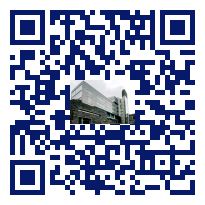BBB seminar: Sharon A. Tooze
Molecular mechanisms of mammalian autophagy
Main content
Sharon A. Tooze
Secretory Pathways Laboratory, London Research Institute, Cancer Research UK
Autophagy is a highly conserved, lysosome-mediated degradation pathway, which plays an important role in cells by reducing the accumulation of damaged proteins and organelles, and contributes to the prevention of human diseases caused by these damaged cellular components. Autophagy also plays a key role in cell survival through nutrient sensing, in particular amino acid sensing. Starvation-induced autophagy, negatively regulated by mTORC1, requires the ULK protein kinase complex membranes (ULK1/2, its complex members FIP200 and Atg13), which assemble together with other Atg (autophagy) proteins (and complexes) to mediate the formation of the double membrane autophagosomes. The autophagosome initially forms as a cup shaped double membrane which sequesters cytosolic material during its closure to form a vesicle. Two ubiquitin-like Atg protein cascades play important roles in autophagosome formation and closure: the Atg12-5-16 complex acts as an E3 ligase to mediate lipidation of the LC3 family members on autophagosomal membranes, while lipidated LC3 on the membrane mediates the final closure step. Autophagosome formation under starvation conditions requires ER-associated membranes and contributions from other organelles, including the Golgi complex and endosomes. Class III Phosphatidylinositol (PI) 3-kinase complex composed of Beclin1, Atg14, Vps34 and p150 is also required for induction of the early precursors, producing an autophagy-specific pool of PI3 phosphate (PI3P). We are interested in how the autophagosome forms, and study a set of these Atg proteins and regulators required for formation. In particular, we are studying the PI3P effector WIPI2, and the transmembrane protein Atg9 which act at an early stage of the pathway. Our current model for Atg9 function and our data on the role of WIPI2 and the pathways leading to the regulation and formation of autophagy will be presented.
Chairperson: Jaakko Saraste, Department of Biomedicine
